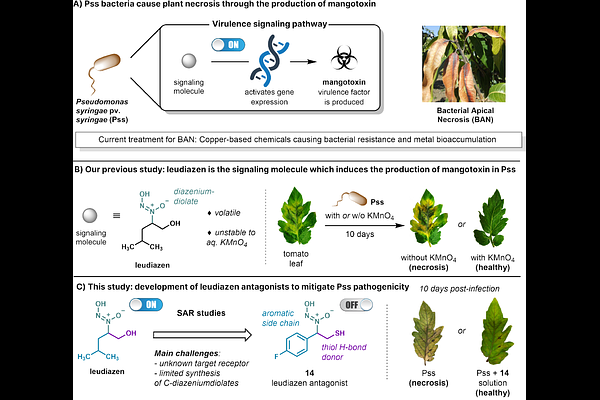Signal Antagonists Suppress Pseudomonas syringae Pathogenicity

Signal Antagonists Suppress Pseudomonas syringae Pathogenicity
Mas-Rosello, J.; Mathew, A.; Avramenko, V.; Ren, J.; Steiner, T.; Sieber, S.; Eberl, L.; Gademann, K.
AbstractThe bacterial plant pathogen Pseudomonas syringae causes significant damage to economically important crops worldwide. These bacteria coordinate their behavior and virulence through specific signaling compounds, such as the diazeniumdiolate leudiazen. Conventional antibacterial treatments enable the development of resistant strains. A more attractive treatment strategy would involve antagonists that suppress the expression of virulence factors without killing the pathogen, potentially reducing the risk of resistance development. Herein, we present the design and synthesis of analogs of leudiazen, which positively regulates the production of mangotoxin in P. syringae pv. syringae (Pss). Several compounds display inhibitory activity towards mangotoxin production, and a lead compound abolishes necrosis in infected tomato leaves, without significantly affecting bacterial growth. Thus, this study represents a promising advance towards developing effective and sustainable methods for bacterial disease control.